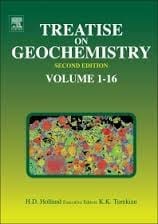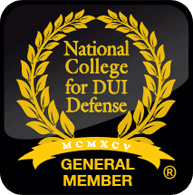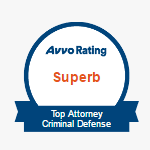I’d like to discuss an exception to the hearsay rule. I know it appears somewhat bland, but the rules of evidence provide for some real impeachment pleasure! If you want fun with a witness on cross-examination in your next criminal trial, find a “learned treatise” the witness must admit is a “reliable authority” on the subject of their testimony. Become familiar with it. Then use it to drive a wedge between their testimony and the prosecutor’s burden of proof.
Our Texas rules of evidence exclude a learned treatise as a hearsay source as follows: “To the extent called to the attention of an expert witness upon cross-examination or relied upon the expert in direct examination, statements contained in published treatises, periodicals, or pamphlets on a subject of history, medicine, or other science or art established as a reliable authority by the testimony or admission of the witness or by other expert testimony or by judicial notice.” A close look at the rule suggests a learned treatise could be almost anything the witness will admit is reliable authority. Everything from a product’s written instructions, a manufacturer’s medical pamphlet on specimen collection, training manuals, a police department’s standard operating procedures, a book on the medico-legal aspects of alcohol, to a desk reference manual on investigations published by your state’s district attorney’s association. The list goes on, but the picture is clear . . . there’s ammunition out there if we dig for it.
examination, statements contained in published treatises, periodicals, or pamphlets on a subject of history, medicine, or other science or art established as a reliable authority by the testimony or admission of the witness or by other expert testimony or by judicial notice.” A close look at the rule suggests a learned treatise could be almost anything the witness will admit is reliable authority. Everything from a product’s written instructions, a manufacturer’s medical pamphlet on specimen collection, training manuals, a police department’s standard operating procedures, a book on the medico-legal aspects of alcohol, to a desk reference manual on investigations published by your state’s district attorney’s association. The list goes on, but the picture is clear . . . there’s ammunition out there if we dig for it.
What we’re looking for, of course, is a opportunity to confront the witness with a reliable (and established) procedure, process, or base of knowledge. When we demonstrate the witness performed some task (or reached some conclusion) in a way contrary to the learned treatise (i.e., the people smarter than us), we’ve scored an impeachment point. And there are always points to be scored, we simply plow into the details to find them. The less experienced the witness the more vulnerable they are to this attack. Bryan-College Station defense lawyers love this attack.
The secret to this cross-examination technique is “teaching” the witness our source is a reliable authority, since once they concede this point they’re married to it. However, we know adverse witnesses are challenging on cross-examination. They rarely want to cooperate with us. Consequently, consider a soft-sell approach. A test of credibility, so-to-speak, while the jury is watching. Unless the treatise is a source the witness must acknowledge (like an article the witness authored), we are compelled to teach them it should be acknowledged as reliable. If they don’t, they will look silly in the process.
First, our source must, in fact, be authoritative on the subject. If we attempt to weave a silk purse from a sows ear we risk loosing valuable credibility ourselves. Allow your witness to examine the source and describe it to the jury. Give the witness all the time they want. Have them acknowledge the publisher, authors, topics, and table of contents included in the publication. Set your witness up. At this point, even before asking them to consider our source reliable, the jury has already decide it is! If possible have another source (or two) to show the witness. If they refuse to acknowledge any of our legitimate treatises as authoritative, they lose credibility and we score points. If they play ball and acknowledge our treatise, we’re on our way to successful impeachment. Have fun!







